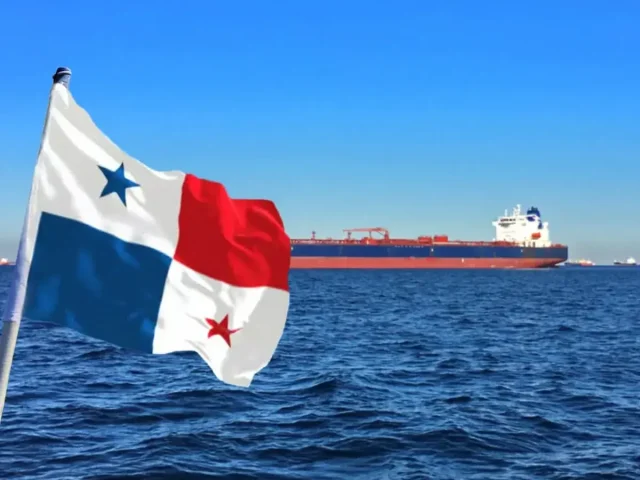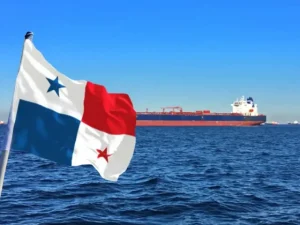In August 2025, the Panama Ship Registry announced a decisive new policy: it will no longer accept oil tankers or bulk carriers older than 15 years for registration. This sweeping change is designed to curb the influence of the so-called “shadow fleet” of aging vessels often tied to sanctions evasion, while improving safety standards in and around the Panama Canal. The move follows the deregistration of hundreds of non-compliant ships and positions Panama as a leader in maritime safety and compliance.
Why the Age Restriction? Tackling the Shadow Fleet
1. Targeting High-Risk Vessels
The “shadow fleet,” also referred to as the “ghost fleet,” is made up of aging tankers—often underinsured and with unclear ownership structures—that operate in gray areas of maritime law. Many are used to transport sanctioned oil from countries such as Russia and Iran. Their poor maintenance, lack of transparency, and questionable operational practices have drawn increasing concern from regulators worldwide.
2. Data-Driven Risk Reduction
Panama’s decision is grounded in safety statistics. Older ships are disproportionately involved in detentions, mechanical failures, and compliance violations. Between 2023 and mid-2025, a significant majority of Panama-flagged ship detentions involved vessels over 15 years old. Many of these were tankers and bulk carriers, both of which present unique safety and environmental risks when poorly maintained.
3. Protecting the Panama Canal
Given the strategic and environmental sensitivity of the Panama Canal, vessel safety is paramount. Mechanical breakdowns or accidents within the canal can have severe operational and economic repercussions, as well as environmental damage. By refusing to register older high-risk vessels, Panama is taking preventive action to safeguard this critical waterway.
–
From Policy to Practice: How It Will Work
1. Updated Pre-Registration Checks
The new rule is incorporated into the country’s pre-registration process, which assesses vessel eligibility before issuing a flag. Any tanker or bulk carrier over 15 years old will now be automatically excluded from consideration.
2. Scope of the Restriction
Importantly, the restriction applies only to new registration applications. Existing ships already flagged under Panama that are over 15 years old will not be immediately deregistered. However, they may be subject to enhanced inspections and compliance checks going forward.
3. Enhanced Oversight
Panama is pairing the new age restriction with stronger oversight measures. This includes more frequent inspections for high-risk vessels, stricter vetting of safety management systems, and closer monitoring of ship ownership transparency.
4. Continuing Vessel Deregistrations
This move builds on Panama’s recent history of removing vessels linked to sanctions or non-compliance. In the past few years, hundreds of ships have been deregistered for failing to meet safety, insurance, or sanctions-compliance standards. In 2025 alone, dozens of vessels linked to sanctioned entities have had their registration revoked.
–
Strategic Impacts
1. Stronger Sanctions Enforcement
By refusing to register older tankers and bulkers—the ship types most frequently used in sanctions evasion—Panama is sending a clear message about its commitment to international law and maritime transparency. This move directly targets fleets that attempt to exploit regulatory loopholes.
2. Raising Safety Standards
Older vessels are more prone to structural fatigue, equipment failures, and non-compliance with modern safety requirements. Reducing their presence under the Panama flag means fewer detentions, fewer accidents, and better environmental protection.
3. Boosting Registry Reputation
Panama operates the world’s largest ship registry, and its reputation has a direct impact on international perception, insurance rates, and commercial relationships. By emphasizing quality over quantity, Panama strengthens its position as a registry that values safety, compliance, and operational excellence.
4. Setting a Global Example
Other flag states have historically been slower to adopt such age-based restrictions, often due to the revenue generated by large fleets of older vessels. Panama’s decision could encourage other registries to adopt similar measures, potentially leading to broader reforms in the global shipping industry.
–
Implementation Timeline
-
Late 2024 – Panama begins revising its pre-registration process to strengthen vessel eligibility checks.
-
Early 2025 – Large-scale deregistration of vessels linked to sanctions and persistent non-compliance.
-
Mid-2025 – Over 650 vessels removed from the registry in the past five years, including more than 200 in the last year.
-
August 2025 – Official announcement of the 15-year age limit for tankers and bulk carriers, effective immediately, alongside the removal of vessels recently added to international sanctions lists.
–
Implications for Shipowners and Operators
1. Fewer Registration Options for Older Ships
Owners of older tankers and bulk carriers will now find it harder to secure a reputable flag state. This could push them toward smaller, less-scrutinized registries, though those flags may carry higher insurance costs and greater port state control attention.
2. Incentive to Renew Fleets
The policy creates a financial and operational incentive for shipowners to invest in newer, more efficient vessels that meet modern compliance and safety standards. This could accelerate fleet modernization in certain shipping segments.
3. Compliance Pressure Across the Industry
Ship management companies, charterers, and insurers will take note of Panama’s policy when assessing risk and operational partnerships. Ships under registries with similar restrictions may be viewed more favorably in the global market.
–
Balancing Safety, Security, and Economics
Panama’s decision reflects a balance between economic considerations and the need for safe, compliant maritime operations. While older ships can still be operationally sound if well-maintained, the statistical risks—and their association with sanctions evasion—make them less attractive to a registry that values its reputation and international standing.
–
Potential Ripple Effects
-
Increased Ship Scrapping: Owners of older vessels may opt to sell for scrap rather than operate under less reputable flags.
-
Pressure on Other Registries: Major registries such as Liberia and the Marshall Islands may face calls to adopt similar age limits.
-
Improved Port Safety: Reduced risk of incidents involving older vessels could improve overall safety in high-traffic port areas and waterways.
–
Conclusion
The Panama Ship Registry’s August 2025 decision to stop accepting tankers and bulk carriers over 15 years old is a landmark move in the fight against the shadow fleet and a major step toward enhancing maritime safety. By focusing on vessel quality, enforcing stricter oversight, and aligning with global compliance standards, Panama is reinforcing its status as a responsible and proactive maritime nation.
This policy not only strengthens safety within the Panama Canal but also sends a message to the international shipping community: the era of lax oversight for aging, high-risk ships is coming to an end.


